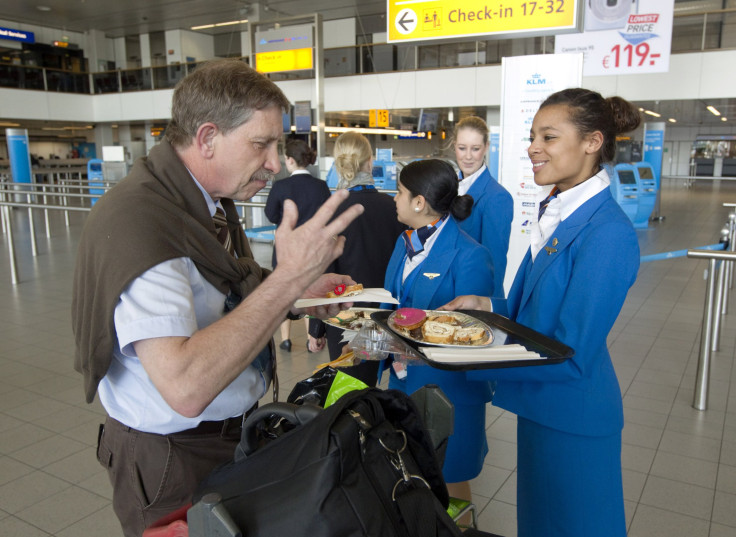Hey Business Traveler, Here’s How To Stay Healthy On The Road

We live such fast-paced lives that eating nutritious is often seen as a luxury for which few have the time or energy. While it’s a problem we all encounter, seldom is this dilemma more acute than for the typical business traveler, faced with dismal airline meals, buffet-style business lunches and a lack of quality fast food establishments at the airport and on the road. Add to the mix skipped meals, hectic agendas, odd hours and few options for self-cooking, and you have a recipe for an unhealthy lifestyle.
Business travelers are notorious for leaving any dietary plans on the back burner when they’re away from home, but Michelle Dudash, a registered dietitian and the author of “Clean Eating for Busy Families,” said they don’t have to indulge bad eating habits on the road
“For frequent travelers, all of those days on the road and at restaurants add up, making them less like a special occasion and more of a habit. Eating clean for most meals will help sustain energy levels, regulate the digestive tract and maintain body weight,” she advised.
One of Dudash’s biggest tips may come as somewhat of a surprise: pack snacks. She said that despite their bad reputation, (healthy) snacks are your best bet to keep the pounds off.
“The latest statistics reveal that snacks account for nearly a quarter of all calories consumed, making it more important than ever for snacks to count toward essential nutrients and food groups. Planned snacks like nuts and seeds, fruits, and raw vegetables with hummus fill nutrient gaps while keeping hunger at bay between meals. They also reduce your chance of reaching for nutritional losers like potato chips, cookies and candy.”
Dudash, a rare combination of chef and nutritionist, offered jet-setting International Business Times' readers some helpful tips to create the perfect snack pack for life on the go.
What To Eat On The Plane
-Dark chocolate (the darker, the better) may reduce the body’s levels of cortisol and catecholamine, hormones that kick in during times of stress and fear, in turn helping highly stressed people feel relaxed and more at ease.
-Complex carbohydrates, found in foods such as whole grain granola or fruit, stimulate the release of serotonin, your good mood brain chemical, enabling you to better tolerate travel woes like flight delays and annoying passengers.
-Vitamin B6, available in a to-go tuna cup, banana or roasted chickpeas, boosts production of the sleep-inducing hormone melatonin.
-Melatonin, found in dried cherries, almonds, sunflower seeds, and tomato juice, resets the body’s clock, reduces jet lag when changing time zones and may help you fall asleep faster.
Additional tips: Pack sunglasses or an eye mask, which will help turn on the sleep hormone melatonin, which only works in dim light or darkness. Also, mix TSA-friendly and electrolyte-rich dehydrated coconut water (it's a powder) with water on the plane to optimize hydration, helping you feel energized upon landing, and erasing headaches and nausea associated with fatigue and dehydration.
Three More Snack Ideas
A bit too much to drink at a company function? Dudash suggests the next morning you have potassium, calcium and sodium (cheese sticks and whole grain crackers, sweet potato chips, coconut water); vitamin B6 (roasted chickpeas, bananas, B6 tablets); and ginger (ginger chews, gingersnap cookies).
For anyone traveling to a sunny spot, Dudash recommends lycopene (red fruits and vegetables, a Bloody Mary); carotenoids (egg salad, kale chips, sweet potato chips); catechins (green tea); flavanols (dark chocolate); and polyphenols (red wine, dark purple grape juice).
And if you need all-day endurance, Dudash suggests snacks of mostly complex carbohydrates, some protein and some good fats (almond butter and jelly sandwiches on sprouted wheat bread, snack bars made of nuts and dried fruit with little honey, a trail mix of pistachios, raisins and oatmeal granola clusters).
© Copyright IBTimes 2024. All rights reserved.






















